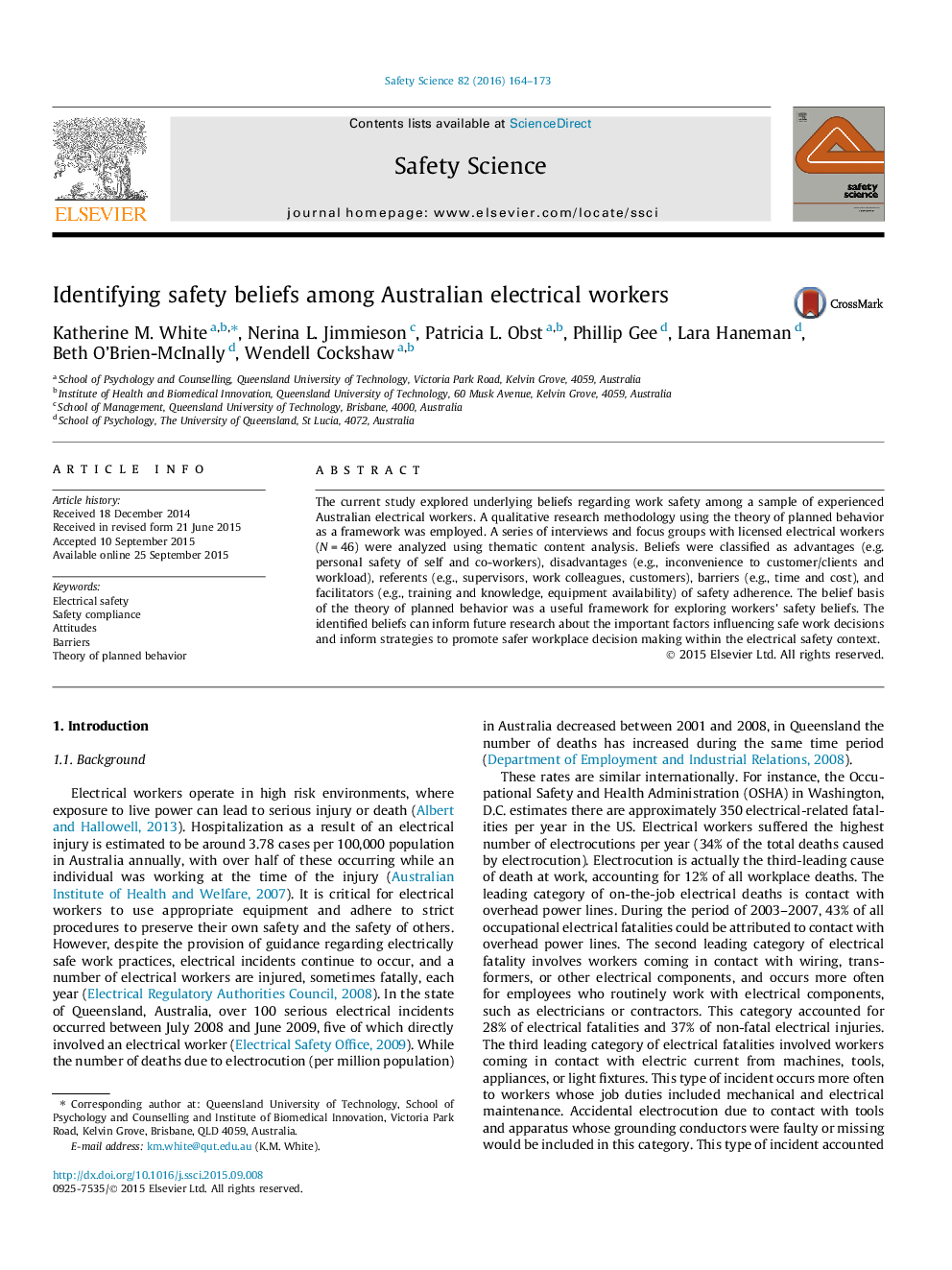| Article ID | Journal | Published Year | Pages | File Type |
|---|---|---|---|---|
| 6975572 | Safety Science | 2016 | 10 Pages |
Abstract
The current study explored underlying beliefs regarding work safety among a sample of experienced Australian electrical workers. A qualitative research methodology using the theory of planned behavior as a framework was employed. A series of interviews and focus groups with licensed electrical workers (NÂ =Â 46) were analyzed using thematic content analysis. Beliefs were classified as advantages (e.g. personal safety of self and co-workers), disadvantages (e.g., inconvenience to customer/clients and workload), referents (e.g., supervisors, work colleagues, customers), barriers (e.g., time and cost), and facilitators (e.g., training and knowledge, equipment availability) of safety adherence. The belief basis of the theory of planned behavior was a useful framework for exploring workers' safety beliefs. The identified beliefs can inform future research about the important factors influencing safe work decisions and inform strategies to promote safer workplace decision making within the electrical safety context.
Related Topics
Physical Sciences and Engineering
Chemical Engineering
Chemical Health and Safety
Authors
Katherine M. White, Nerina L. Jimmieson, Patricia L. Obst, Phillip Gee, Lara Haneman, Beth O'Brien-McInally, Wendell Cockshaw,
